GrootGroenPlus: looking at the future with colleagues |
|
|
|
|
 |
| 320 sec |
"Sharing knowledge and working together, to strengthen the industry and face challenges together"
As someone from Belgium in the board of GrootGroenPlus, Didier Hermans feels right at home in this Dutch 'tree nursery club'. GrootGroenPlus is the most important trade fair, specifically focused at the tree nursery industry and therefore in the best position to connect the tree nursery industry.
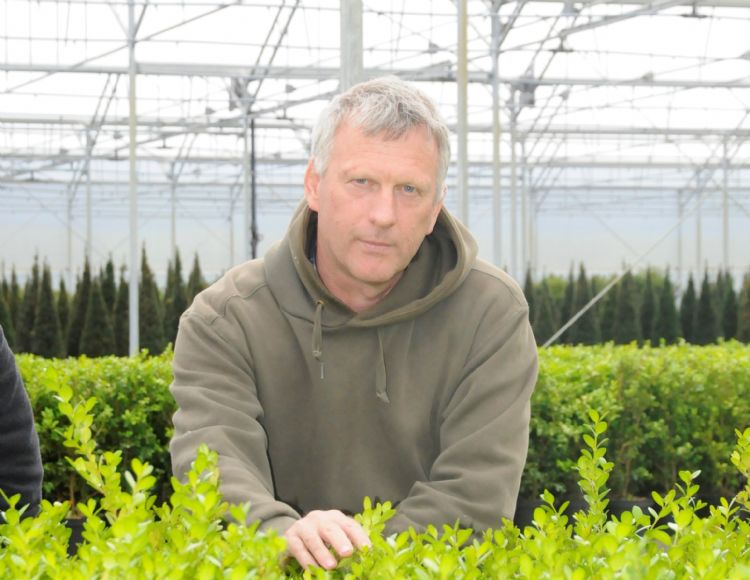 |
Didier Hermans grows Buxus and Taxus with his company Herplant, a renown Buxus nursery in Beerse in Belgium. In the board of GrootGroenPlus, he is not just the Belgian link, but he also knows everything about cooperation, research, and defending the interests of growers in difficult situations. The best example of that is the image problem of Buxus, which is now already in the past. At that time, one-sided and misleading information in the media caused a lot of harm to growers and retailers. Many colleagues froze, instead of joining forces and get to a joint response. Hermans feels that it is important to work together and if necessary, organise as a group for challenges or threats to the nursery industry or part of it.
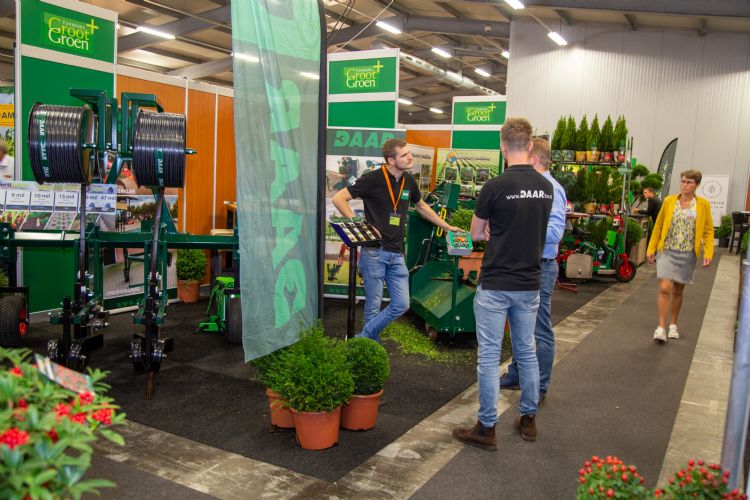 | | "At the trade fair, you can look each other in the eye, which makes it easy to talk about what's important." |
|
|
Look each other in the eye
Meetings like those at GrootGroenPlus can be the start of such cooperation or strengthen the connections. Hermans: "If you participate in the trade fair as a grower, you can show off novelties and present your company. However, that's not the only thing. At GrootGroenPlus, you can also meet hundreds of colleagues at one place, which can create a lot of impact. Of course, everyone is there for trade as well, but you don't need physical meetings for that. At the trade fair, you look each other in the eye, which makes it easier to talk about what is important now and in the future, and what issues we have to deal with."
Following the euphoria are questions
"The euphoria that has dominated the green industry in the last few years, is over," continues Hermans. "The demand was huge, but partly due to the war, that has changed. The aftermath of corona, the abolition of subsidies, and a shrinking market also play a part. Many growers have to deal with questions such as: who are my customers? Who do I want my customers to be in the future? Maybe we have to take another route, find a new type of customer, or turn the current customers into better ones. Or the company must become more visible in the market. Maybe a change of product is needed, or the product should be positioned otherwise. The trade fair offers a platform to discuss this with colleagues and exchange visions."
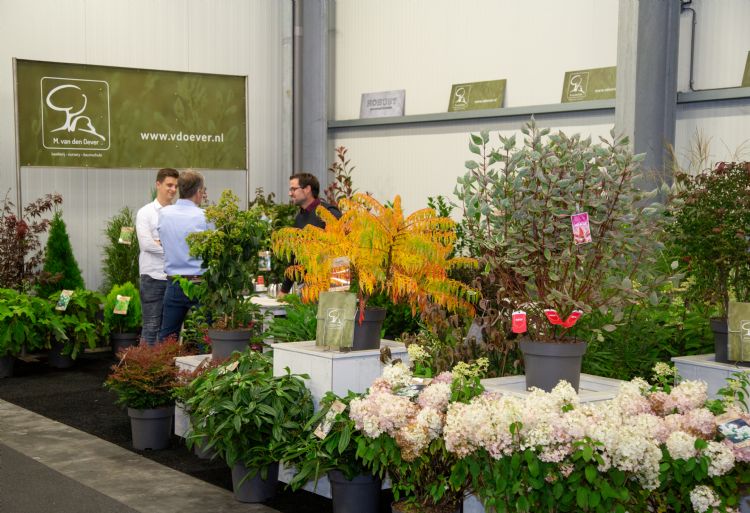 | | After the trade fair, we can build on everything that has been discussed. |
|
|
|
|
"Cooperation makes both companies and the industry much stronger in facing the challenges we have to deal with"
| |
|
"Of course, not every grower likes to network. You might find it easy to talk to everyone; you might be the one who pulls back a bit more. However, it is important that as growers, we meet each other in real life, and discuss what really matters. The number of meetings is not as important as the contents of the conversations. Many professionals like to build upon whatever has been discussed at the trade fair. For example by joining forces in a political discussion, in new knowledge cooperation, or by looking at customers and products in a different way. In any case, it will make sure that both businesses and the industry will stand stronger in the challenges we are facing nowadays."
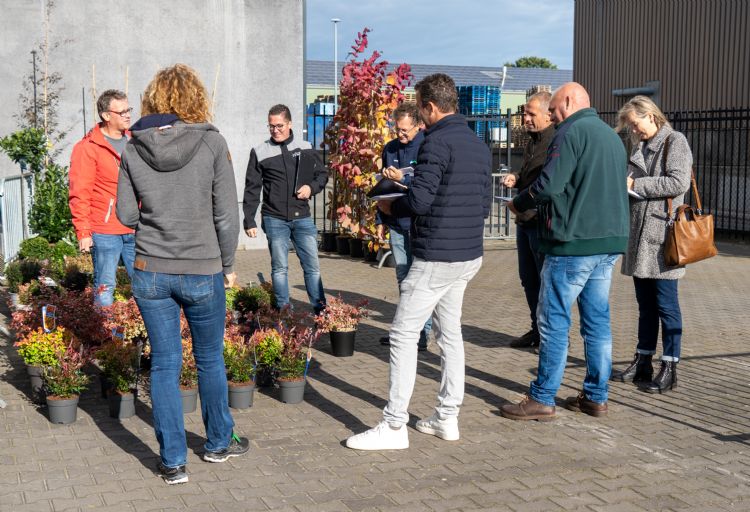 | | Connecting and trade go hand in hand. |
|
|
International
The trade fair in Zundert has a European appeal, with an accent on the Netherlands and Belgium. However, Germany and Poland are also increasingly more often represented in Zundert, just like the other countries from the eastern part of Europe. Hermans: "We must not forget that the Dutch position is very strong when it comes to ornamental cultivation, even on a global level. Especially regarding professionalism and knowledge. That is why with GrootGroenPlus, we are able to create a great trade fair with an international appeal."
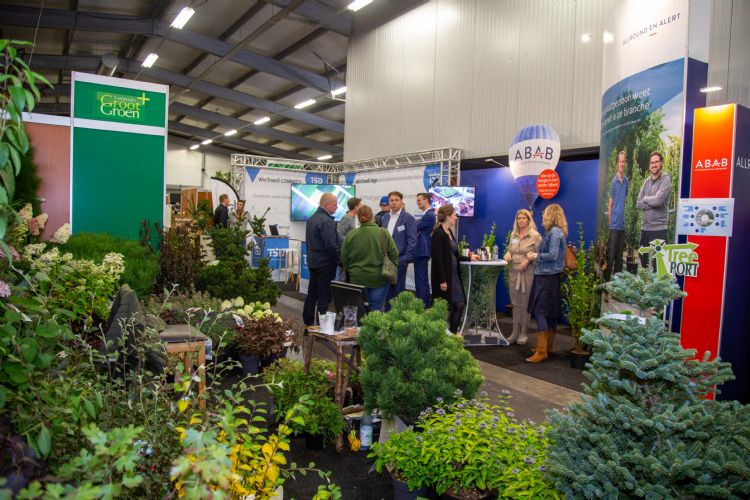 | | "The theme 'Grounded' touches upon issues that we all have to deal with." |
|
|
Go in-depth with the trade fair theme
The theme of this year's edition of trade fair GrootGroenPlus is 'Grounded'. Does this theme contribute to the substantive encounter? Hermans: "At first, I had my doubts when it came to the trade fair theme, and its contribution to the conversations at the trade fair. However, I am now convinced of this multifaceted theme of 'Grounded' in our industry, and all the opportunities it offers to really dive deep. It touches upon everything that is important to growers: the soil they use to grow their products, the location they are established, the region in which they live and trade, the living soil, the water and fertilisation, the substrate they use to grow their products on, and all the discussions related to that. Of course, people can still do their business, but the theme of 'Grounded' explores issues that concern us all. For example when it comes to the increased number of restrictions for crop protection, or striving towards a healthy soil, the challenges in water management, and the use of peat in potting soil. With colleagues, you can talk about how they solve problems, and what their point of view is. You meet like-minded people and people with a completely different vision. You can learn from both of them."
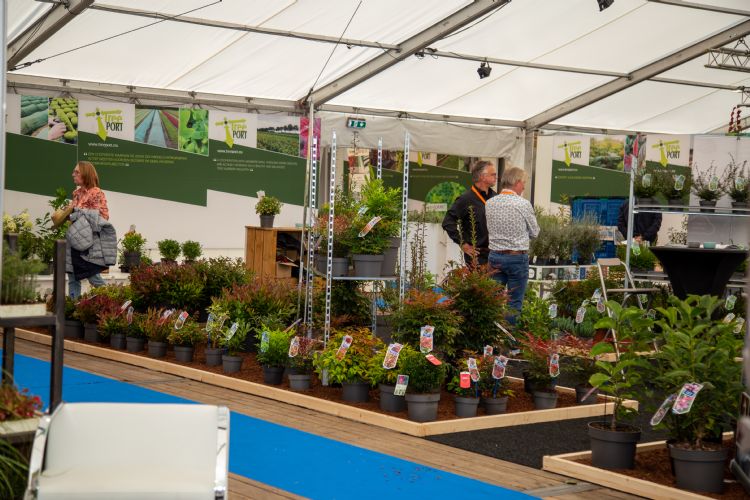 | | A lot of knowledge is shared through industry organisations such as Treeport Zundert. |
|
|
Sharing knowledge
According to Hermans, it is not just about exchanging experiences and opinions: "I think it is very important to gain and share knowledge. Industry organisations such as Anthos, LTO and Treeport Zundert share a lot of knowledge and conduct a lot of research. There is also a lot of scientific research and practical research, and of course the research that growers conduct themselves. Scientific research offers a lot of insight, but doesn't always match reality. Sometimes all it produces is an article in a scientific magazine. Practical research is much closer to reality, but the knowledge that is gained still has to be put to use, and preferably shared with others, so we can all benefit from it. To me, the best kind of research is research that directly involves growers, and that focuses on solving the issues that we have to deal with every day."
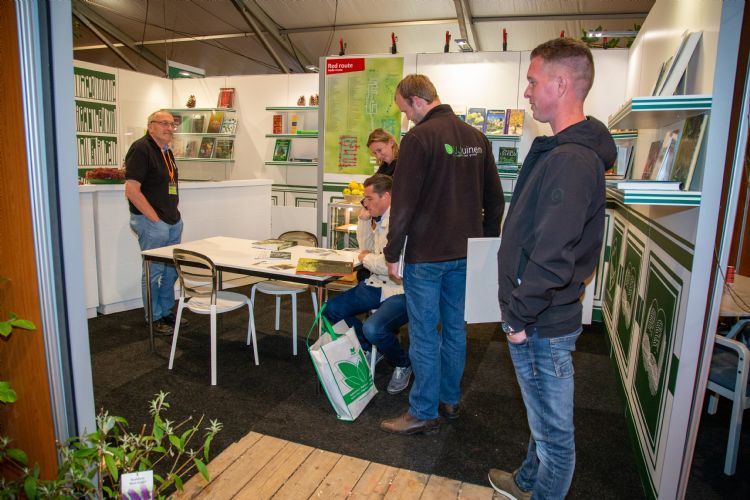 | | Sharing knowledge can be done in multiple ways. |
|
|
Sharing knowledge gives power
Not all companies find it easy to share knowledge; maybe a competitor might benefit from something you've worked hard for. However, sharing is still important, according to Hermans: "Sharing practical knowledge is important to get ahead as an industry; we need each other for that. I do understand it when some people are less open about their findings, because no one wants to weaken their own position. But I believe that openness and sharing knowledge, research results and practical experience, strengthens all parties, including one's own position. Also in the direction of the media, which often shows a one-sided image. One only has to think about the issue with the buxus moth some time ago. Many growers became somewhat complacent, because they couldn't counter the negative feelings regarding the Buxus. Many growers of Buxus weren't able to survive. Another example is the discussion surrounding peat that is currently happening, usually also one-sided, without having the right knowledge. That already starts with the idea that the peat would be lost, while in fact, it becomes part of the soil and contributes to a greener world from that position. Or what about the idea that substrate uses a lot of peat, while energy generation still uses much more. One-sided and misleading points of view are shared widely. As an individual grower, you cannot really make a difference in such a discussion.
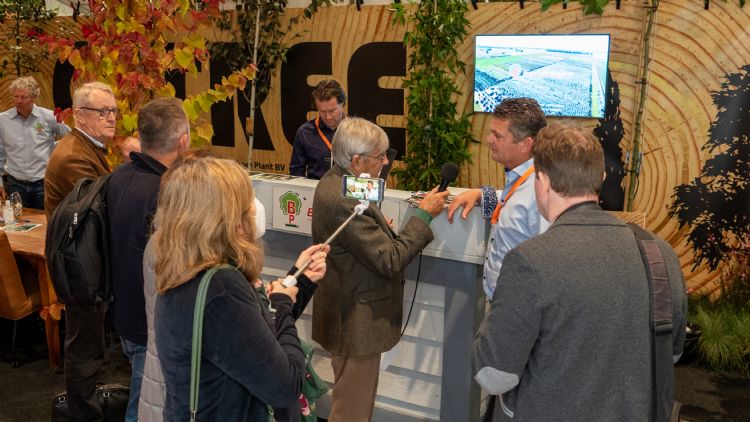 | | "As an industry, your position when it comes to contacts with the media is stronger." |
|
|
Ornamental plant research centre
Herman continues: "I would for example think about the Ornamental Plant Research Centre in Belgium, where they conduct practical trials, research assortment, resilience, water storage, and more. Knowledge is important for your own growth, but also for the position of the industry in the major issues that are playing at the moment. An example of valuable research is that into the infestation of Buxus due to fungus. Previously, spraying following a calendar, which would add up to approximately twenty treatments, combated this. As a result of the research, they started spraying after infestation, which would only require seven treatments, with better results. That is a finding that you can benefit from immediately.
Herplant, Hermans' company, conducts a lot of research. "We did research into resistant types of Buxus. Regardless of the negative image the product was getting, we continued our research. The resistant types we created can be found in many castle gardens throughout Europe now, including The Loo Palace in the Netherlands."
|
|
"Incorrect and persistent imaging in the media is a much larger risk than giving the competition information."
| |
|
Get out of the shadows
Hermans continues to emphasise the importance of sharing knowledge and joining hands, due to the major issues and challenges the industry is now facing: "These are issues that require us to get out of the shadows; we shouldn't keep that knowledge to ourselves. Incorrect and persistent imaging in the media is a much larger risk than giving the competition information."
Didier Hermans and Herplant
Didier Hermans and his brothers Louis and Luc are in charge of daily management of Herplant, the nursery that was founded in 1985 in Beerse by their parents. The nursery has a surface of 30 hectares and specialises in Buxus and Taxus. In 2007, Herplant started with the refinement of Buxus. Didier Hermans mainly focuses on the research part of the company. Besides growing Buxus and Taxus in pots, they also grow Buxus and Taxus as hedges outside, with pruning shapes. Another speciality is growing a very large assortment of Buxus types and varieties. The latest sprout of the Herplant branch is formed by the Betterbuxus hybrids.
|
| LOGIN
met je e-mailadres om te reageren.
|
|
|
| Er zijn nog geen reacties. |
|